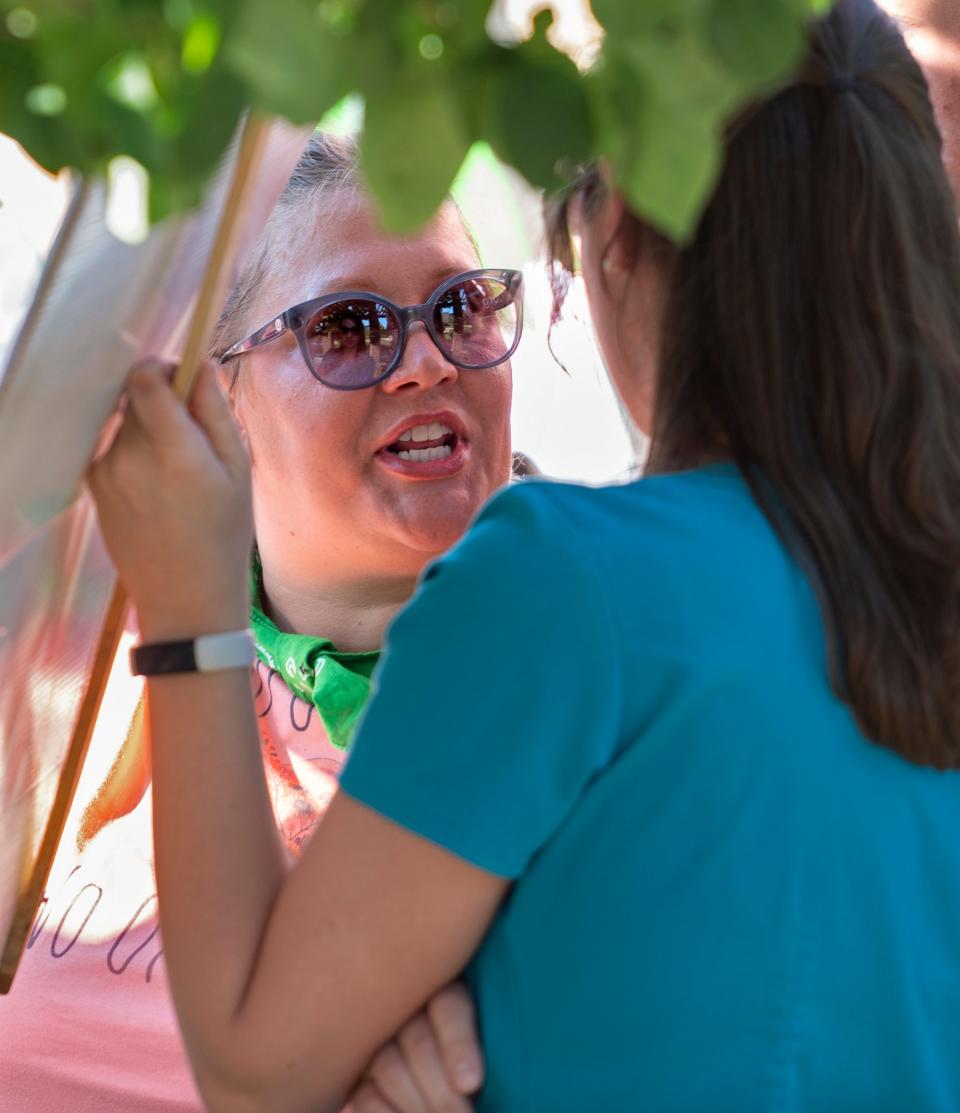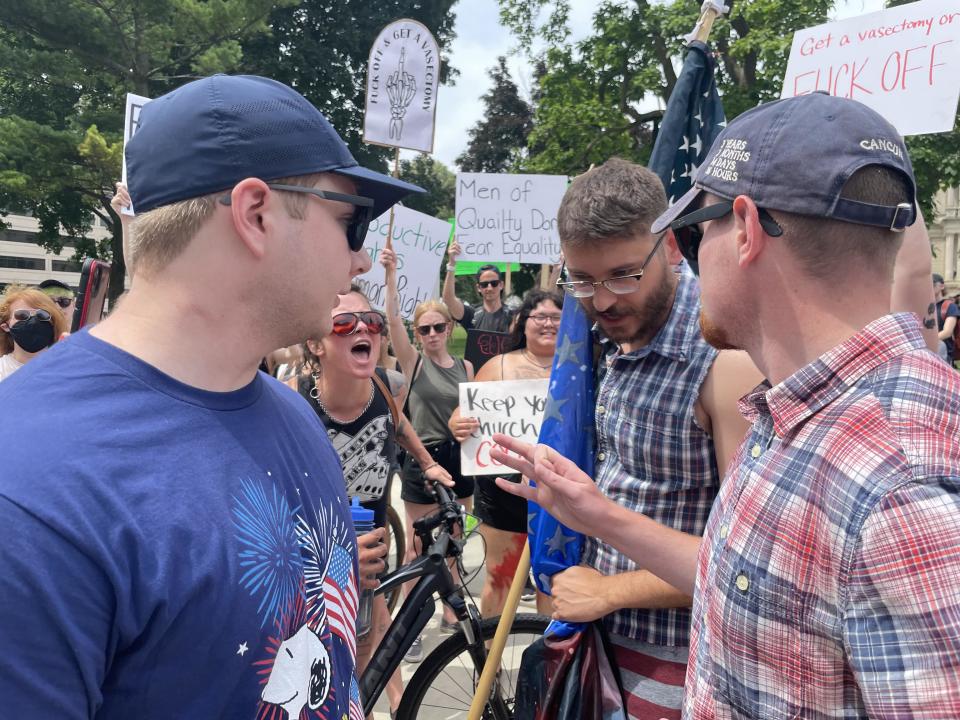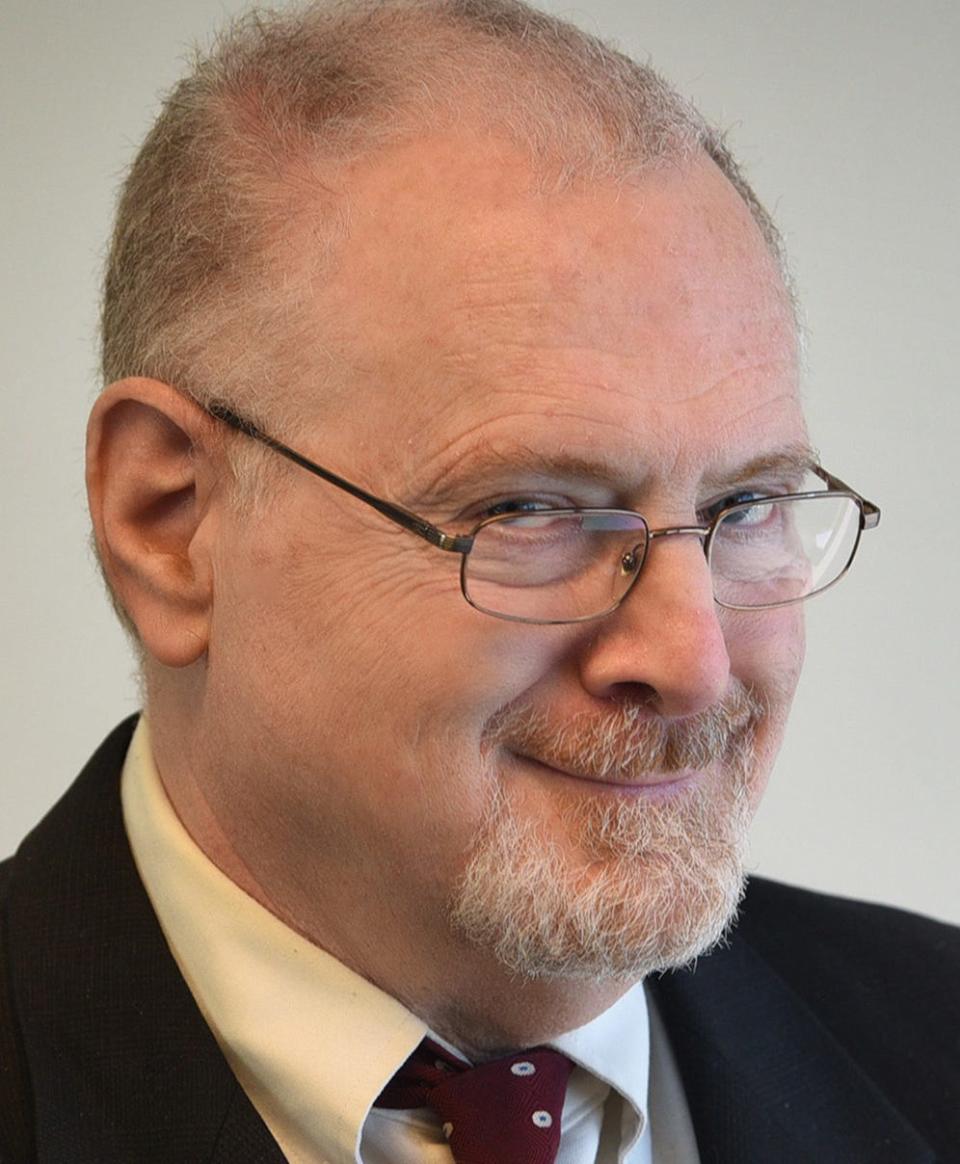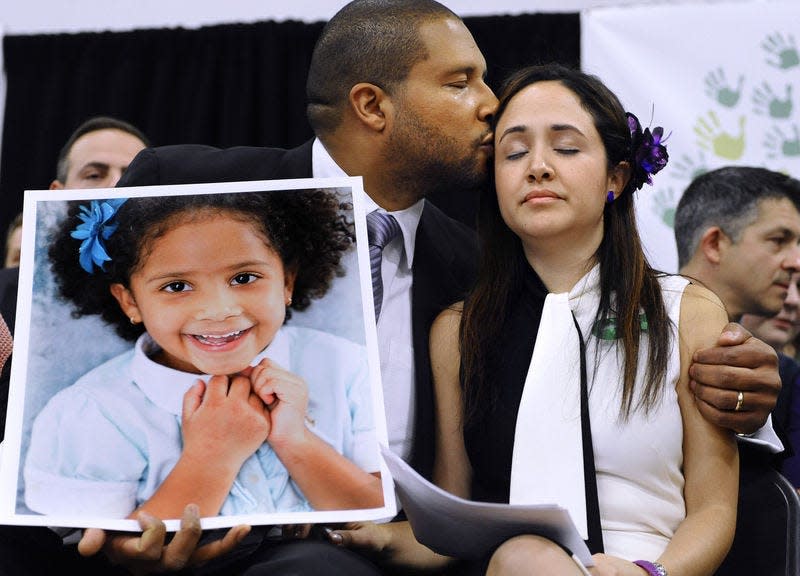Can there be politics without rage? One podcast is trying the experiment — Matters of Fact
- Oops!Something went wrong.Please try again later.
Conflict is the essence of drama.
Drama is the essence of ratings.
Understand that, and you'll understand a lot of what is going on in media − and in American politics, which is increasingly the creature of media.
Why do reality shows like "Hell's Kitchen" and "Real Housewives" degenerate into squabbles, even brawls, at the drop of a catty remark? Why do political disagreements go to DEFCON 1 as soon as there's a camera or iPhone involved?
Increasingly, the guiding principle of our culture seems to be that of the school lunchroom: "Fight! Fight! Fight!"
"Donald Trump's 2024 Motivations Are More Sinister than You Might Think."
"HuffPost Writer Makes Dumbest Pro-Abortion Argument Yet."
Not content to merely show a fight, media often draws us into it. Those headlines — random examples, from the left and the right, that recently came across our transom — exist for one reason only. To Rile Us Up.
"Media content is often driven by advertising dollars, which incentivize more polarizing, more outrageous content," said Ciaran O'Connor, host of the podcast "Braver Angels."
"That's what drives clicks," he said. "And clicks is what drives revenue."
It's a divisive age — and media, arguably, has fed America's sickness. Can it be part of the cure? The podcast "Braver Angels," and the organization that hosts it, would like to try.
"We try to model what constructive cross-partisan discourse might look like, in the media space," O'Connor said.
The podcast, which has been dropping roughly once a week since 2018, is in some ways a throwback to an earlier form of political discourse: pre-1987, back before the FCC repealed the Fairness Doctrine that demanded that broadcasters provide "balanced" coverage of issues.
"Braver Angels" brings liberals and conservatives together for moderated, civil discussions of hot-button topics like abortion, guns, vaccines, race, the Jan. 6 insurrection. Er, "legitimate protest."

"Our real goal is to build a national movement to bridge the divide and hold the country together, as things become more polarized — and more dangerously polarized," O'Connor said.
More:Is Elon Musk's idea of 'free speech' on Twitter good? What experts say — Matters of Fact
Ground rules
The first rule of Fight Club is, Don't Talk About Fight Club. The first rule of "Braver Angels" — which is a Don't Fight Club — is Do Not Attempt to Persuade.
"You're not there to change someone's mind," he said.
Which might seem odd. Counterintuitive.
The whole purpose of a debate, after all, is to convince you I'm right, and you're wrong. Unless I'm you. In which case the point is to convince me that I'm wrong.
Therein lies the whole problem, O'Connor said.
"One of the most important ground rules is that you're not there to change anybody's mind," he said. "You're there to listen, and be heard. And that's an important distinction − because I think people are conditioned to see political conversations as an opportunity to try to win, or persuade. So I think abandoning that expectation is really important."
The podcast is the creation of Braver Angels, a New York-based, nationwide 501(c)(3) nonprofit — originally called "Better Angels" when it was founded in 2016, in the wake of the Trump election. The phrase "better angels" — it ran into copyright problems and had to be changed — is of course derived from Lincoln's famous 1861 inaugural speech appealing to "the better angels of our nature."
Which, you will recall, did not prevent Civil War. Braver Angels is hoping for better luck.
"We are part of the American family, and like it or not, we're going to be living with each other for a long time yet − hopefully," said David Lapp, an Ohioan who co-founded Braver Angels with David Blankenhorn and Bill Doherty.
"I just think it's better if we can do this as friends, rather than enemies," he said.
Beyond stereotypes

The goal to help us see each other as individuals, as Americans — as human beings. As opposed to the media-driven stereotypes: the trigger-happy troglodyte of the red states, and the "socialist" fanatic of the blue states who wants to change everybody's pronouns.
"I think it starts by bringing people together, and by doing it in a structured way," said O'Connor, a New Yorker who identifies as liberal: he worked on campaigns for Barack Obama and Hillary Clinton.
In addition to the podcast, Braver Angels has sponsored workshops, debates, even songwriting initiatives all across the country. There are 80 local Braver Angels alliances across the country, said O'Connor, who is chief marketing officer.
"Our workshops give people an opportunity to talk across the divide in a manner where they start to get a little more understanding of opposing perspectives, and to reduce the stereotyped thinking," he said.
For example? Many on the left view Trump as a divisive figure — as objectively he was. They assume that the people who voted for him were deliberately courting chaos. But Lapp, who was on the ground in Ohio in the 2016 election, knows that electorate well. And what voters kept telling him at the time — quite sincerely, he believes — is that they hoped Trump would "bring the country together."
"It just seems to me that we were completely missing each other, in terms of demonizing each other," said Lapp, a lifelong Republican who calls himself a "Catholic Christian, socially conservative" (he didn't vote for Trump, though).
"I just thought if we could chat a bit, we could find out we were more alike than we think," Lapp said.

Matters of Fact | A column about our lives in the age of media
Their best shot
One recent podcast pitted gun safety activist Mark Beckwith, former episcopal bishop of Newark — he also served as associate rector St. Peter's Church in Morristown and rector of Christ Church in Hackensack — against Wilk Wilkinson, a conservative gun owner from Minnesota.
Only they weren't really against each other. They were just talking.
"Man, I was too young to even remember my first experience with a gun," Wilkinson said. "From the day I was born there was always a gun in my household, if not multiple guns in my household."
More:Eric Boehlert helped us become more media literate. Here's how we continue his work
More:Can we legislate local news? Two senators and a congressman want to find out
For his part, Beckwith admitted that apart from BB guns, and a few visits to a shooting range, he had no relationship with firearms.
"I think that's a lot of the fault line," he said.
Wilkinson is a hunter and sportsman. Beckwith is an activist, who cut his teeth in the anti-war protests of the 1960s, and was galvanized into action over guns by the 2012 Sandy Hook massacre that left 20 children and 6 adults dead.
"My colleagues from all across the country said we need to offer our voice, our witness, to reduce the scourge of gun violence," Beckwith said.
Wilkinson sees gun violence as primarily a mental health issue.
"It's more about education, and conversation," he said.
Beckwith — respectfully — disagrees.
"This is not a mental health issue," he said.
The problem, he believes, is easy access to guns.
"I was invited to go to St. Louis recently because two kids, two cousins, were in a bathroom playing with a gun, making a video, and it went off and both got shot and killed," he said. "That stuff happens."
What they both agree on is gun safety.
"There is not a single responsible gun owner in this country who does not agree with gun safety principles," Wilkinson said.

And what they might potentially come together on — the tiny beginnings of an accord — is legislation to keep guns away from the mentally ill. Assuming it's nonpartisan and subject to due process, Wilkinson said.
"A strong bill that does keep firearms out of the hands of mentally disturbed people, that's something everybody should be able to get behind," he said.
Of course, that's just two people. One conversation. It will take a lot more than that to change the tenor of the country in 2022.
But you have to start somewhere. A Brown University study indicated that people, one week after participating in a Braver Angels workshop, showed 22% less direct hostility to those in the other party, and scored lower on partisan implicit bias test.
"In a country of 350 million people, it's going to take a lot of growth to have an impact," O'Connor said. "But all social movements start small."
Can it really work?
Nearly everyone wishes Braver Angels well. But not everyone is totally convinced that the political air can be detoxified by talk. Even courteous talk.
"I wonder if we really need to do more in order to depolarize politics," said Michael Harrington, a political scientist who participated in one of its programs.
One problem that Braver Angels — and the rest of us — struggle with is that the country appears to be divided, not only by different ideologies, but different sets of facts.
As a matter of policy, the podcast does not filter or censor views. In practice, that means giving a platform, as one recent podcast did, to someone like Peter Wood Jr., an anthropologist and author who maintains that the 2020 election was stolen, and that Jan. 6 was a false flag operation by liberals.
"It’s a very challenging dilemma," O'Connor said, who did try in his introduction to give the remarks "context."
"I was pretty astonished with the things Peter Wood said about Jan. 6," O'Connor said "He's a pretty well established conservative academic. The point is, it demonstrates how mainstream those views have become on the right."
To block that viewpoint — and thus ignore a large swath of Americans who hold similar views — would run counter to the whole point of Braver Angels. "The other approach people use is, this person should not be invited into the discussion," O'Connor said. "And those people become further alienated and mistrustful."
And so it goes, in our increasingly Disunited States of America. Which is some ways resembles a certain great tower, mentioned in Genesis 11:1.
The Tower of Babel, you will recall, was prodigious, exceptional — much as we like to think America is.
It fell, because the people couldn't talk to each other. Talking — not shouting, not arguing — is a skill we need to relearn, Lapp believes. Now. While the tower still stands.
"I think we owe it to the founding fathers to give it a shot," he said.
Jim Beckerman is a culture reporter and media columnist for the USA TODAY Network NorthJersey.com. For unlimited access to his insights about contemporary culture and the media, please subscribe or activate your digital account today.
Email: beckerman@northjersey.com
Twitter: @jimbeckerman1
This article originally appeared on NorthJersey.com: 'Braver Angels' podcast tries to address politics without rage

